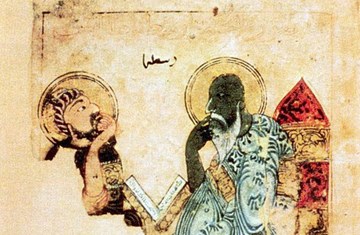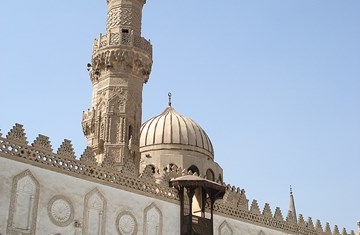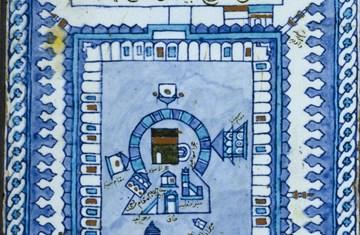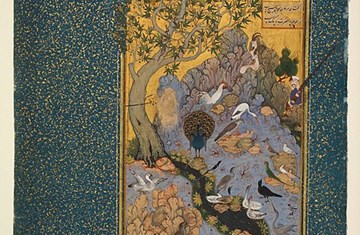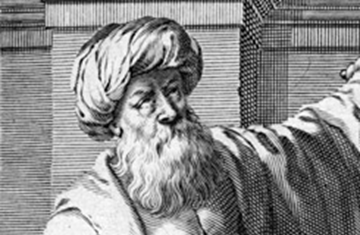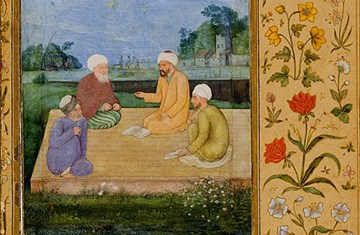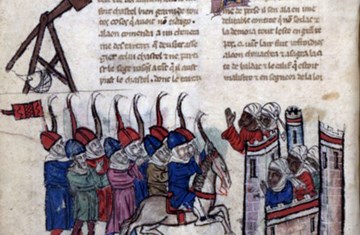A distinct Ismaili system of jurisprudence was founded after the establishment of the Fatimid dynasty in North Africa. The pre-Fatimid Ismailis were preoccupied in various parts of the Abbasid Empire with missionary activities, promising the advent of the expected messianic figure called Mahdi and Qa’im who would restore justice and equity. Toward this goal, they developed a highly sophisticated gnostic system of thought, wherein the batini (esoteric) sciences were more emphasised than the zahiri (exoteric) sciences. Law not only belonged to the latter category but also had very little practical use until the Ismailis had not obtained political power. Hence, it was not a priority at that stage. This, however, does not mean that they completely neglected law. The early Shi‘i communities, especially the Imamis, shared a common heritage with each other up to the death of Imam Ja‘far al-Sadiq in 148 AH/765 CE. Thus, they shared certain rituals and practices that had evolved until then. Recent scholarship has demonstrated that Imam Muhammad al-Baqir played a major role in the shaping of Shi‘i jurisprudence (Lalani, pp. 114-26), which became crystallised during the time of his son Imam Ja‘far al-Sadiq and was known as madhab Ahl al-Bayt (rite of jurisprudence from the family of the Prophet). It should be also noted that both the Ismailis and the Imamis consider Imam Muhammad al-Baqir and his son Imam Ja‘far al-Sadiq as the founders of their respective systems of law, because most of the traditions in Qadi al-Nu‘man’s Da‘a’im al-Islam and Abu Ja‘far Muhammad Kulayni’s Kitab al-kafi are traced back to these Imams. This school of jurisprudence was not in favour of ra’y (personal opinion) or qiyas (analogical deduction), both of which prevailed in the contemporary circles of the Sunni juris-consults (faqih). The Ismailis shared certain ritualistic features with other Shi‘i, such as the wiping of the feet in ablution, saying basmala (i.e., the formula Be’sm Allah al-rahman al-rahim) aloud in recitation of the Qur‘an and during obligatory prayers, and addition of the formula hayya ‘ala khayr al-‘amal (come to the best of work) in the call to prayer (adhan; Lalani, pp. 120-24).
Soon after his triumphant entry into Qayrawan in 296 AH/909 CE, Abu ‘Abd Allah al-Shi‘i, a major Fatimid da‘i who was instrumental in the founding of the Fatimid dynasty, appointed Muhammad b. ‘Umar Marvazi, a local Shi‘i figure, as judge (Qadi). Marvazi imposed strict adherence to the above Shi‘i rituals and legal practices. Moreover, he ordered the omission of al-salat khayr men al-nawm (prayer is better than sleep) from the morning call to prayer and prohibited the tarawih prayers led by a mosque imam during the month of Ramadan. In the Friday sermon (khutba) he added the blessings (salat) on Imam ‘Ali, bibi Fatima, Imam Hasan, and Imam Husayn immediately after the blessings on the Prophet. He also issued an order forbidding jurists to give legal opinions except according to the Shi‘i madhab (school), declared talaq al-batta (irrevocable divorce) invalid, and upheld the right of a daughter to inherit the whole of her father’s estate, to the exclusion of ‘asaba (agnates), in the absence of a son (Ibn al-Haytham, pp. 64-67; Maliki, II, pp. 41, 55-56, 60-62; Ibn ‘Izari, I, pp. 151,159,173).
Unfortunately, we have no information about legal compositions of Marvazi or his immediate successors in the office of qada’ Ifriqiya. One can only surmise that some of those judges might have written law manuals hoping that their works would be recognised officially. Even if they did, their works were overshadowed by those of Qadi al-Nu‘man and soon fell into disuse and were lost.
Qadi al-Nu‘man, an Ismaili Shi‘i from Qayrawan, entered the service of the Fatimid dynasty at an early age and served in various capacities the first four caliphs consecutively for over half a century, from 312AH/924 CE until his death in 363AH/974 CE. He was commissioned by the fourth imam-caliph al-Mu‘izz al-Din-Allah (r. 341-65 AH/953-75 CE) to compose the Da‘a’im al-Islam, his magnum opus, which was officially promulgated as the Fatimid code. He is, therefore, rightly regarded by the Ismailis as the one who propounded their law. Qadi al-Nu‘man had also composed several legal works based on the madhab of the Ahl al-Bayt. In his first and voluminous Kitab al-izah, which has reached us in abridged versions, his efforts were directed to the collection and classification of a vast number of legal traditions transmitted from the family of the Prophet. He compiled this work from all the available sources. This early and massive work consisting of 3,000 folios could be seen as an attempt by Qadi al-Nu‘man to lay the foundation on which Ismaili law could then be built. Consequently, he made several abridgments of the Kitab al-izah, namely Kitab al-akhbar (or al-ikhbar), Mukhtasar al-izah, al-Urjuza al-muntakhaba, Kitab al-iqtisar, and Kitab al-ikhtisar (or Mukhtasar al-athar, or Ikhtisar al-athar). In addition to those legal texts, he also wrote refutations of the Sunni schools of jurisprudence and their founders, such as Malik b. Anas, Abu Hanifa, and Shafi'i (for the chronology of these works and the development of Nu‘man’s thought, see Poonawala, 1996, pp. 119-24). In his Ikhtilaf usul al-madhahib (p. 22), Qadi al-Nu‘man cites the decree of Imam al-Mu‘izz al-Din-Allah, wherein he is instructed by the latter about the roots of jurisprudence. It states that, in issuing his legal decisions, Qadi al-Nu‘man should first follow the Qur’an, next, the tradition (sunna) of the Prophet, and for what is not found in either of them he should turn to the madhab of the Imams from the family of the Prophet. If something still remains doubtful and difficult to resolve, he should refer the matter to the Imam. In his Kitab al-iqtisar (p. 167) and Kitab al-ikhtisar, Qadi al-Nu‘man proposes the same principles for issuing legal decisions and rejects ra’y and qiyas.
The Da‘a’im, according to Imad-al-Din Idris (d. 872 AH/1468 CE), a Musta‘li-Tayyibi da‘i and a historian, was closely supervised by the Caliph-Imam al-Mu‘izz himself (Idris, p. 44). The work follows the general pattern of law manuals and is divided into two volumes. The first deals with the acts of devotion and religious observances (‘ibadat) while the second with laws pertaining to human interactions (mu‘amalat). Qadi al Nu‘man states on the authority of Imam Ja‘far al-Sadiq that Islam was founded on seven pillars, that is, walaya (devotion to the imam), tahara (ritual purity), salat (prayers), zakat (charitable giving), sawm (fasting in the month of Ramadan), hajj (pilgrimage to Mecca), and jihad (holy war). Walaya, the corner-stone of Ismaili faith, embodies the doctrine of the imamate that lies at the basis of Shi'ism, and Qadi al-Nu‘man transformed it into a dynamic principle after the establishment of the Fatimid caliphate. It is considered the highest and the noblest of the seven pillars, without which no human acts of devotion and worship are acceptable to God. It should be noted that, unlike with the Ismailis, walaya did not become part of the Imami legal works. The Da‘a’im was therefore the first juristic text to give walaya a legal status in Islamic law. For the Ismailis and the newly founded Fatimid dynasty, it was not merely a religious belief but was the very basis of their claim to the political leadership of the Muslim community. In the chapter on jihad, Qadi al-Nu‘man included the 'ahd (a command document) ascribed to Imam ‘Ali b. Abi Talib (Da‘a’im, tr., I, pp. 436-56), which dealt with the ruler’s conduct with his subjects. This document, according to Wadad Kadi (p.104), represents the Ismaili theory of the state. Tahara, which implies physical and spiritual purification and is a necessary requirement for the valid performance of prayers, was raised by Qadi al-Nu‘man to the status of an independent pillar (di‘ama, pl. da‘a’im).
The Da‘a’im, as a law manual, addresses matters of substantive law, hence, Qadi al-Nu‘man restricted the authorities to Imam Ja‘far al-Sadiq and his predecessors. In this work he does not deal with the day-to-day running of the state, where the ultimate authority was the ruling Imam. The sources of law, according to Qadi al-Nu‘man, are the Qur’an, the tradition (sunna) of the Prophet, and the teachings or rulings of the Imams. The major differences with Imami (Twelver Shi‘i) law are that Qadi al-Nu‘man admitted the prohibition of temporary marriage mut‘a, and the introduction of a fixed calendar rather than sighting the new moon for the beginning and end of Ramadan (Da‘a’im, tr., I, p. 339 , II, p. 214). The Da‘a’im is considered by the Musta‘li-Tayyibi Ismailis as the greatest authority on their law and has remained until today a source of supreme authority for them in legal matters.
Ibn Killis (d. 380 AH/991 CE), vizier of the Imam-caliph al-‘Aziz, is credited to have composed a legal work based on the pronouncements of Imam al-Mu‘izz and Imam al-‘Aziz (r. 365-86 AH/975-96 CE), but the work did not survive. After Qadi al-Nu‘man, there was no significant development in Ismaili law either during the remainder of the Fatimid rule in Egypt or in Yemen, where the Musta‘li-Tayyibi community survived for the next four centuries after the fall of the Fatimids in Egypt (567 AH/1171 CE) and the Sulayhids in Yemen (532 AH/1138 CE). It was in India that the works of Qadi al-Nu‘man were glossed. Aminji b. Jalal (d. 1010 AH/1602 CE), an eminent jurist, deserves special mention in this respect. His Kitab al-su’al wa’l-jawab (Majdu‘, pp. 37-38) is an interesting collection of legal questions and their answers. Another noteworthy work is the anonymous Kitab al-su’al wa’l jawab al-masa’ik al-Hind ma‘ al-hawashi men kutub al-Qadi al-Nu‘man (Majdu‘, p. 37) , which consists of questions put to the contemporary da‘is and other da‘wa dignitaries and the answers given by them. In addition, it contains extensive excerpts from the works of Qadi al-Nu‘man that have not survived, especially Kitab al-izah and Mukhtasar al-izah. Another anonymous work worth mentioning is Taqwim (or Taqawim) al-ahkam (Majdu‘, pp. 36-37), wherein various topics in law concerning what is permitted and what is forbidden are arranged in a novel way. All the latter three works reiterate that ra’y and qiyas are not permitted. Hence, they give answers to the questions posed in the form of a ruling, however, without going into the details of methodology as to how the authorities arrived at those answers.
One can thus conclude that Ismaili jurisprudence began with Qadi al-Nu‘man and ended with him. Before him, there was no distinct Ismaili jurisprudence, and after him there was no significant development except glosses, repetition, and restatement.
Bibliography
Anonymous, Kitab al-su’al wa’l jawab al-masa’ik al-Hind ma‘ al-hawashi men kutub al-Qadi al-Nu‘man 2 vols., MS. in the collection of Mulla Qurban Husayn Gudhrawala.
Anonymous, Taqwim al-ahkam, MS. in the collection of Mulla Qurban Husayn Gudhrawala.
Aminji b. Jalal, Kitab al-su’al wa’l-jawab aw Masa’el Aminji b. Jalal, MS. in the collection of Mulla Qurban Husayn Gudhrawala.
Ibn al-Haytham, Kitab al-munazarat, ed. and tr. Wilferd Madelung and Paul Ernest Walker as The Advent of the Fatimids: A Contemporary Shi‘i Witness, London, 2000, pp. 66-67.
Ibn ‘Izari Marrakushi, al-Bayan al-magreb fi akhbar muluk al-Andalus wa’l-Magreb, ed. G. S. Colin and E. Levi-Provencal as Histoire de l’Afrique du nord et de l’Espagne musulmane et fragments de la Chronique de ‘Arib, new ed., 2 vols., Leiden, 1948-51, I, pp. 151, 159, 173.
‘Imad al-Din Idris b. ‘Abd-Allah, ‘Oyun al-akhbar wa-fonun al-athar VI , ed. Mustafa Galeb, Beirut, 1404/1984,pp. 35-50.
Asaf A. A. Fyzee, Compendium of Fatimid Law, Simla, 1969.
Arzina R. Lalani, Early Shi‘i Thought: The Teachings of Imam Muhammad al-Baqir, London, 2000, pp. 114-26.
Wilferd Madelung, “The Sources of Ismaili Law,” Journal of Near Eastern Studies 35, 1976, pp. 29-40.
— — , “‘Abd Allah b. ‘Abbas and-Shi‘ite Law,” in U. Vermeulen and J. van Reeth, eds., Law, Christianity and Modernism in Islamic Society: Proceedings of the Eighteenth Congress of the Union Europeenne des Arabisants et Islamisants, held at the Katholoieke Universiteit Leuven, Sept. 3-9, 1996, Leuven, 1998, pp. 13-25.
Esma‘il b. ‘Abd-al-Rasul Majdu’, Fahrasat al-kutub wa’l-rasa’el, ed. ‘Ali-Naqi Monzawi, Tehran, 1966, pp. 18-38.
‘Abd Allah b. Muhammad Maleki, Riaz al-nufus fi tabaqat ‘ulama’ al-Qayrawan wa Ifriqiya, ed. Bashir Bakkush, 3 vols., Beirut, 1983, II, pp. 41, 55-56, 60-62.
Abu Hanifa Qazi Nu‘man b. Muhammad Tamimi, Da‘a’im al-Islam fi dhikr al-halal wa’l-haram wa’l-qazaya wa’ l-ahkam, ed. ‘Asaf A. A. Fayzi (Fyzee), 2 vols., Cairo, 1951-61; tr. A. A. A. Fyzee, as The Pillars of Islam, completely revised and annotated by Ismail K. Poonawala, 2 vols., New Delhi, 2002-4.
— —, Kitab al-Ikhtisar, ed. Mohammad Wahid Mirza, Damascus, 1376/1957, p. 167.
— —, Kitab Ikhtelaf usul al-madhaheb, ed. S. T. Lokhandwalla, Simla, 1972. pp. 19-24.
Ismail K. Poonawala, Bibliography of Ismaili Literature, Malibu, Calif., 1977, pp. 48-68, 78-79,185.
— —, “Al-Qazi al-Nu‘man and Ismaili Jurisprudence,” in Farhad Daftary, ed., Medieval Ismaili History and Thought, Cambridge, 1996, pp. 117-43.
Rudolf Strothmann, “Recht der Ismailiten,” Der Islam 42, 1954, pp. 131-46.
Wadad Kadi, “An Early Fatimid Political Document,” Studia Islamica 48, 1978, pp. 71-108.

